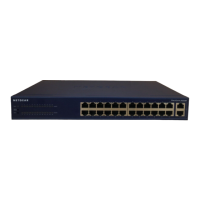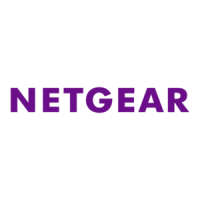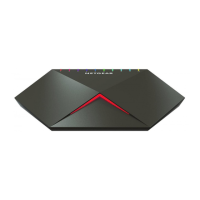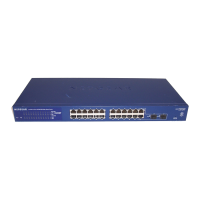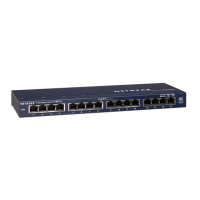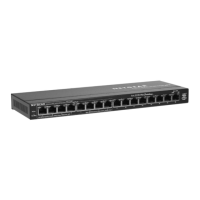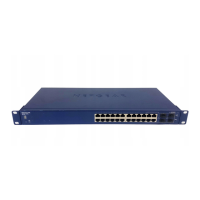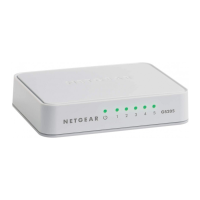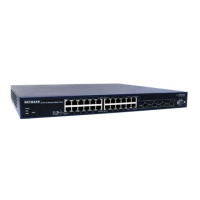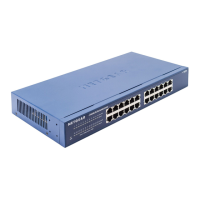Configure System Information
113
S3300 Smart Managed Pro Switch
Services
This section describes how to configure the DHCP L2 Relay, DHCP snooping, DHCPv6
snooping, and Dynamic ARP Inspection (DAI) features on the switch. DHCP snooping and
DAI are layer 2 security features that examine traffic to help prevent accidental and malicious
attacks on the switch or network. From the Services configuration menu, you can access
screens described in the following sections:
• DHCP L2 Relay on page 113
• DHCP Snooping on page 116
• DHCPv6 Snooping on page 122
• Dynamic ARP Inspection on page 126
DHCP L2 Relay
DHCP relay agents eliminate the need to have a DHCP server on each physical network.
Relay agents populate the giaddr field and also append the Relay Agent Information option to
the DHCP messages. DHCP servers use this option for IP addresses and other parameter
assignment policies. These DHCP relay agents are typically IP routing-aware devices and
are referred to as Layer 3 relay agents. In some network configurations, there is a need for
Layer 2 devices to append the Relay Agent Information option as they are closer to the end
hosts.
These Layer 2 devices typically operate only as bridges for the network and might not have
an IPv4 address on the network. Lacking a valid IPv4 source address, they cannot relay
packets directly to a DHCP server located on another network. These Layer 2 devices
append the Relay Agent Information option and broadcast the DHCP message.
DHCP L2 Relay Global Configuration
Use this screen to view and configure the global settings for DHCP snooping.
To enable DHCP L2 Relay global settings:
1. Select System> Services > DHCP L2 Relay > DHCP L2 Relay Global Configuration.
2. Next to DHCP L2 Relay Global Configuration, select Enable in the Admin Mode field.
The factory default Admin Mode is Disabled.
3. Click the Apply button. The updated configuration is sent to the switch. Configuration
changes take effect immediately.
Type The unknown TLV type field.
Value The unknown TLV value field.
Table 39. LLDP neighbor details (continued)
Field Description
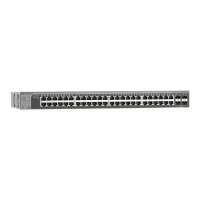
